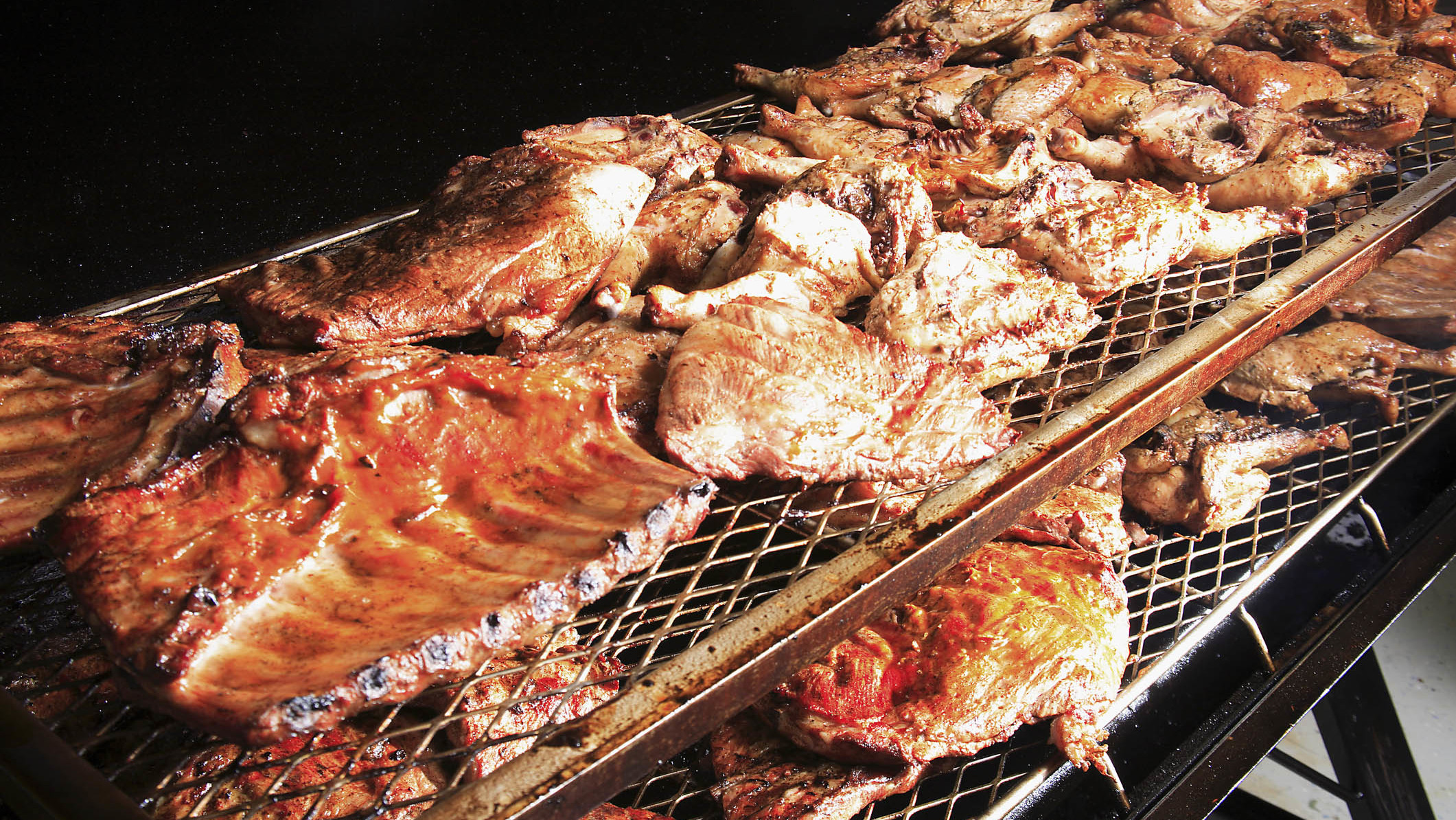Brooklyn Barbecue Got Smoked On Twitter Today
Just as "San Francisco" and "New York" have become pejorative to a red-leaning sect of the American populace, "Brooklyn" too carries a certain punchline—and it's liberal non-Brooklynites doing much of the eye-rolling. There is truth in that Brooklyn has earned its reputation as a trend-setting borough in food, art, music, fashion, but there's also this perception of an outsized self-regard—especially amongst young non-natives summoned by New York City's siren song, who figure if they could make it here, they'll make it anywhere. Few would dispute Brooklyn is a vital tastemaker of American popular culture, it's just the peacocking can be pretentious to the point of vulgarity.
Case in point: Munchies—an excellent food site from Vice, by the way—sent out a tweet Sunday linking to a story originally published in 2014. First, notice the headline. Then notice the header image. And finally, look at that Twitter ratio of replies-to-retweets and faves. And then let's reconvene and dissect this social media fiasco (or win, depending on how you want to view this):
Why is Brooklyn barbecue taking over the world? https://t.co/aiemJpWxZw pic.twitter.com/dGPyQ7X912
— MUNCHIES (@munchies) March 4, 2018
Let's set aside the actual story and argument for a moment, and assume as is standard practice of Twitter, people react only to the tweet. The responses have been rather savage. Users flooded Munchies' replies with pictures and messages along the lines of "this is what real barbecue looks like." If I've learned anything from my decade writing about food professionally, it's that few topics in food inspire as much civic loyalty—and derision for anything that isn't—as regional barbecue.
It didn't help that the header image is pretty shitty: A few slabs of gray desiccated brisket, two smashed hamburger buns, a couple of pickles and what looks to be a mason jar (of course) of beer. The lighting could be better, the composition is awful. I've been to the Brooklyn restaurant featured in this image, Fette Sau, and it does a disservice to their barbecue—which is really good.
This is what a BBQ plate should look like. pic.twitter.com/Hk71rXTGck
— George Merritt (@gsm1060) March 4, 2018
But what of the story (which must be again said, is a story from four years ago)? The author's central conceit is that a distinctly Brooklyn-style of barbecue restaurants have spread, "very quickly and without warning, to every fucking corner of the world." The story cites two fucking corners—in Panama and Colombia. (Okay, let me reveal one of the dirty secrets of journalism: Reporters know that if you're seeking examples to bolster your story's thesis, one is an anomaly, two is a coincidence, and three makes a trend story.)
The author explains the Brooklyn style ("it all looks like it came straight out of Williamsburg") has its own idiosyncratic traits, including decor (Edison light bulbs, exposed brick walls), use "free-range and hormone free" meats from small farms, and perhaps the most counterintuitive of his arguments: Brooklyn barbecue don't follow any one regional style or barbecue philosophy.
The absence of a style is not a style. If Memphis ribs are the blues and North Carolina pulled pork is folk and Texas brisket is country, Brooklyn barbecue is Now That's What I Call Music, Vol. 32.
"The argument that the BBQ style is a purely Brooklyn invention is what's silly. The writer attempts to downplay the importance of Texas-style smoked brisket right after naming BrisketTown as one of the joints," said Daniel Vaughn to The Takeout, barbecue editor at Texas Monthly and the man I turn to for all-matters barbecue (BrisketTown, incidentally, has since closed).
Said Vaughn: "We have great Neapolitan-style pizza in Dallas. A Mexican restaurateur might get hooked on it after trying it here for the first time, but if he opens a pizza shop in Monterrey, it ain't gonna be referred to as Dallas-style pizza."
I can name one barbecue restaurant arguably just as influential as Fette Sau, and preceded its opening. Smoque was founded in Chicago in December 2006. I humbly submit it's the best barbecue in the Midwest. The lines remain out the door, 11 years after it opened its doors. It ticks off every box Brooklyn barbecue claims to be original. I don't think my claim kills the author's argument. But it does offer a non-New Yorker's perspective, and in food writing, it'd be nice to have more of that.
Still, chalk it up as a metrics win for Munchies: As of this post's publishing, the Brooklyn barbecue link has been retweeted 648 times, while similar Munchies stories Sunday have only been retweeted in the single digits. If there's anything I've learned about social media, it's that people are more likely to engage with a post when they're angry at its contents. Click click click click click.
